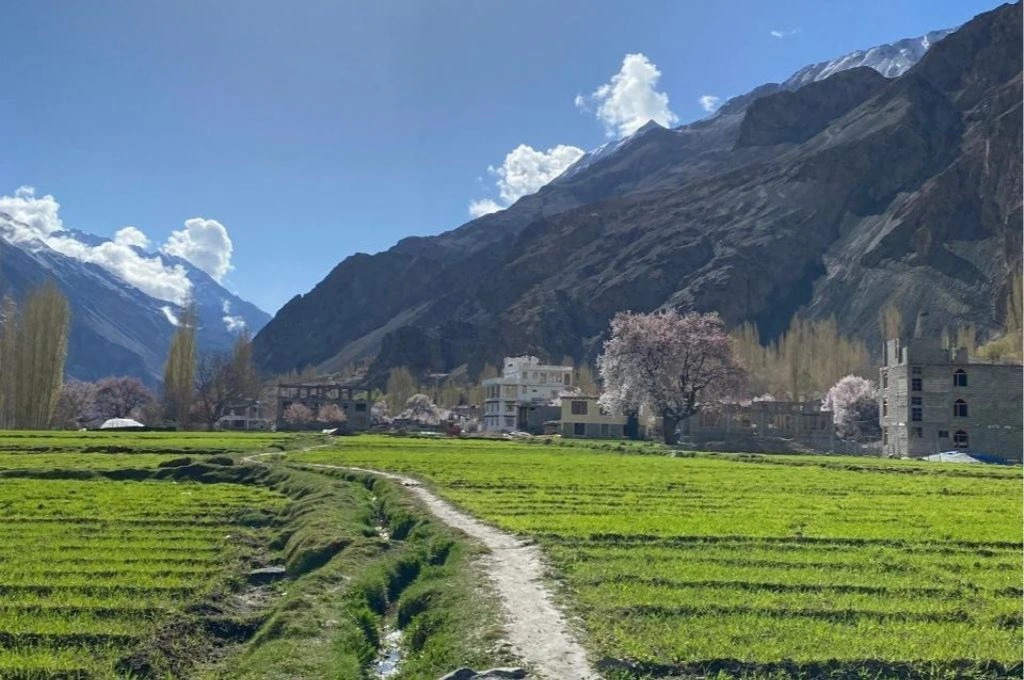Why a Balti village in Ladakh supports the sixth schedule demand

I am from Turtuk village in Leh district, Ladakh, which is very close to the line of control between India and Pakistan. The village is mostly inhabited by Balti people like me who are spread across Ladakh and the Pakistan-administered Gilgit-Baltistan region. We are an indigenous community that speaks the Balti language (an ancient Tibetan language) and uses the Yige script, which is falling out of use. Traditionally, our people are agriculturists and livestock farmers; they have also been employed by security forces such as the Indian Army, CRPF, and CISF.
In the early 2000s, tourism started catching up in Leh. In the initial years, tourists were not allowed into Turtuk, but this changed by 2010. Before we realised, our village became one of the most popular tourist areas in Leh. Our people hadn’t planned for it; there was no existing infrastructure. They just started constructing cement and concrete guest houses and buildings for the visitors. These new buildings replaced the local architecture, which was characterised by wooden beams, mud, and stone, and was perfect for Leh’s climate because it promoted insulation and kept the houses warm during winters and cool during summers.
The spike in tourism brought an economic boom, but at the cost of the environment. Overnight, we became a tourism-focused village and many people gave up on agriculture and other traditional activities.
Since we no longer produce much of the food that we consume, we are now dependent on packaged products. Non-biodegradable plastic packets can be found everywhere in the village; these pollute our water sources and have an overall negative impact on our climate.
The increase in pollution and unsustainable construction has exacerbated climate change in the region. Even the few farmers who try to continue farming are discouraged because they can no longer predict the weather. Earlier, we depended on the melting snow in the valley to irrigate our crops during the sowing season in March–April. But now sudden surges in temperature are causing the snow to melt earlier than usual, and there’s no water left when the crops need it.
The problem is that we don’t have a functional governing body to manage tourism in our village. While a tourism development authority was set up when we were still part of the erstwhile state of Jammu and Kashmir, it has been defunct since Ladakh became a union territory in 2019. We need to be included as a sixth schedule area under the Indian Constitution—this will establish our autonomous district councils with legislative, judicial, executive, and financial powers. Our own council will manage Turtuk’s development in a sustainable manner. It will also support our cultural conservation efforts, such as the one for the revival of the Yige script.
Ghulam Mehdi Shah is a climate activist and member of Leh Apex Body, an alliance of various political, social, and trade bodies in Leh.
—
Know more: Learn why unemployment has become worse in Ladakh since 2019.
Do more: Connect with the author at ghulammehdi54@gmail.com to learn more about and support his work.



